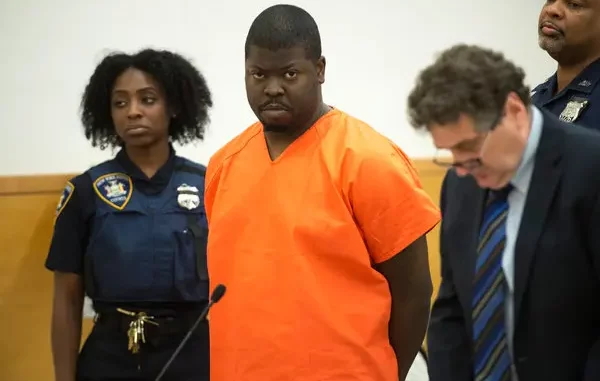
Daniel St. Hubert, the man infamously dubbed the “Brooklyn Ripper,” passed away in New York’s Green Haven Correctional Facility on December 17, 2024. His death brings a grim chapter in Brooklyn’s history to a close, leaving a community still grappling with the memories of his horrific crimes.
St. Hubert was serving a 50-year-to-life sentence for the brutal 2014 attack that claimed the life of six-year-old Prince Joshua “PJ” Avitto and critically injured 7-year-old Mikayla Capers. The tragedy occurred in an East New York public housing elevator, sparking fear and outrage across the city. St. Hubert’s rampage, which was later linked to additional violent acts, earned him the notorious moniker that would follow him for the rest of his life.
The Crime That Shook Brooklyn
The elevator attack was as sudden as it was savage. Armed with a steak knife, St. Hubert targeted the two young children as they returned home from playing outside. PJ succumbed to his injuries, while Mikayla’s survival was nothing short of miraculous, albeit leaving her with physical and emotional scars that remain to this day. The brutality of the act stunned the city, prompting widespread media coverage and a manhunt that would end days later with St. Hubert’s arrest.
St. Hubert was also linked to the murder of an 18-year-old woman, Tanaya Copeland, who was fatally stabbed just days before the elevator attack. The similarities in the cases created a chilling picture of a man who seemed to target his victims at random, leaving a trail of devastation in his wake.
A Troubled History
Born and raised in Brooklyn, St. Hubert’s life was marked by instability and violence long before his name became synonymous with terror. Diagnosed with schizophrenia, he had a history of mental illness that was compounded by repeated run-ins with the law. He had been released from prison just nine days before the elevator attack, a fact that sparked heated debates about the system’s ability to monitor and rehabilitate individuals with serious mental health issues.
At his trial, prosecutors painted a chilling picture of St. Hubert as a remorseless predator. Despite his mental health struggles, the jury found him guilty of second-degree murder, attempted murder, and assault, leading to a sentence that ensured he would spend the rest of his life behind bars.
Death in Prison
Details surrounding St. Hubert’s death remain sparse. Officials at Green Haven Correctional Facility have not disclosed the cause of death, though it is believed to be non-violent. His passing has reignited conversations about mental health care, criminal justice, and the lasting impact of violent crime on victims and their families.
For the families of PJ Avitto and Mikayla Capers, the news of St. Hubert’s death may provide a sense of closure, but it is unlikely to erase the pain of their loss. “Nothing can bring back what we’ve lost,” a relative of PJ’s said. “But maybe now, we can all finally start to heal.”
Leave a Reply